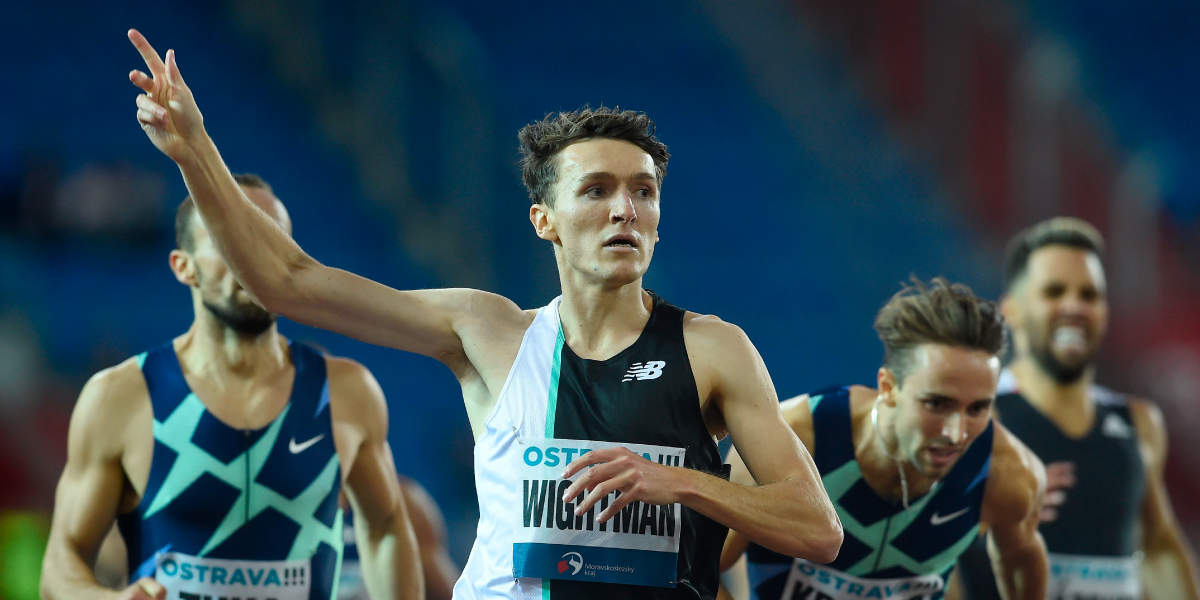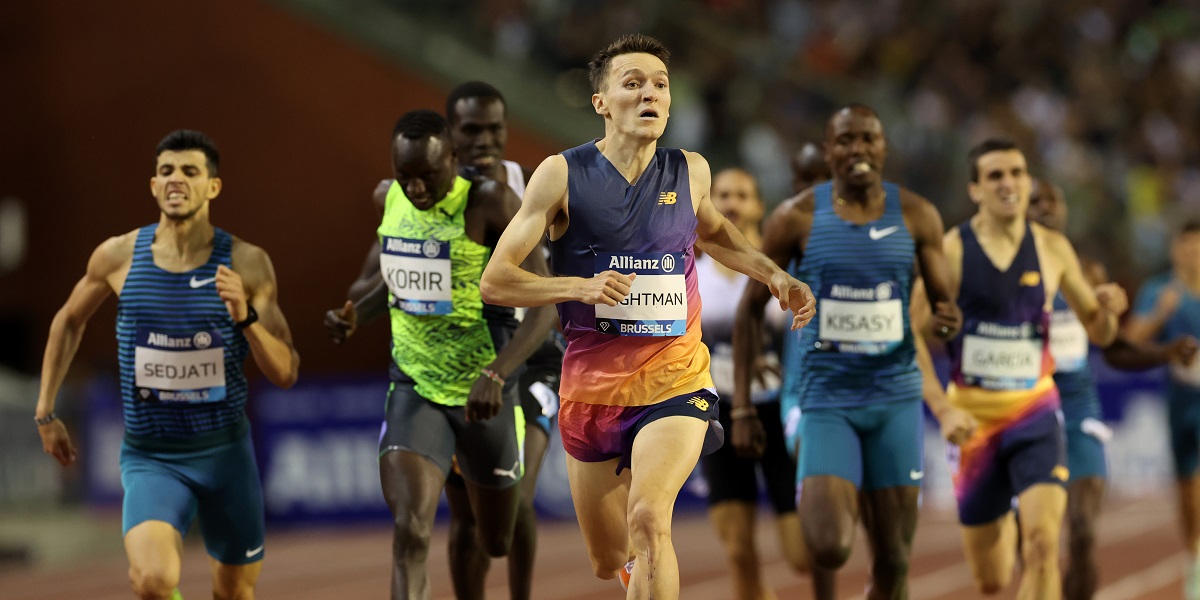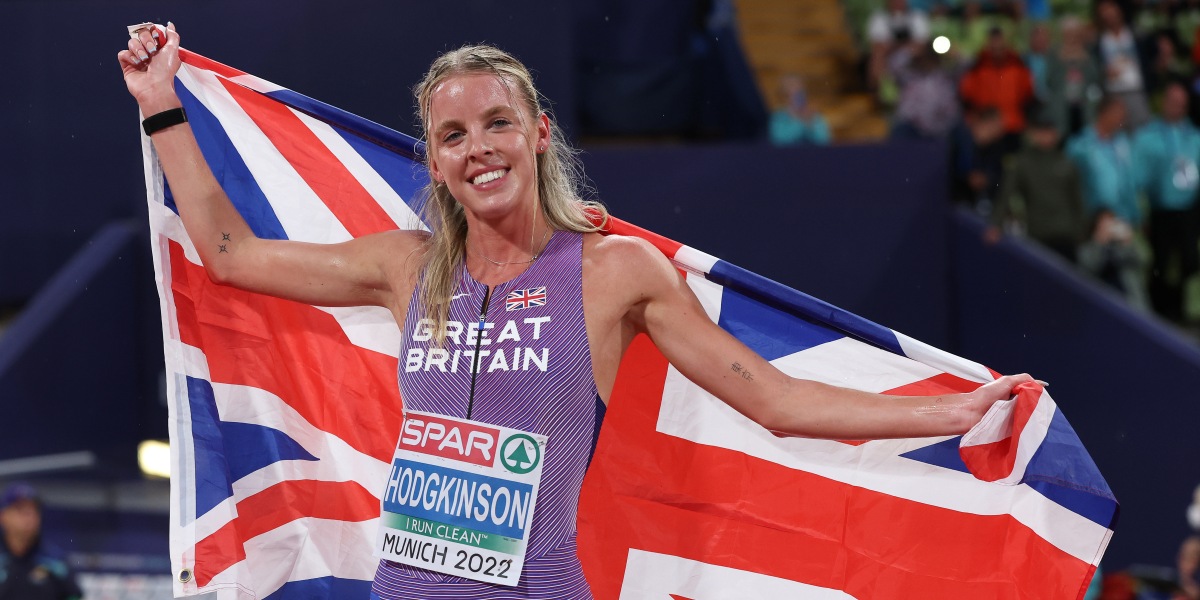
8th July 2021
Historic mile trophies to be hotly contested at the Müller British Grand Prix
- Scottish star Jake Wightman attempts to regain historic mile trophy at the Diamond League in Gateshead
In terms of record-breaking at the Müller British Grand Prix at Gateshead on Tuesday 13th July, it’s safe to say more eyes will be on the Millicent Fawcett Mile thanks to the presence of world 1500m and 10,000 champion Sifan Hassan who won the inaugural event in 2018.
The race commemorates suffragist Millicent Fawcett and the centenary of women’s suffrage in the UK. The last run edition in 2019 was won by Konstanze Klosterhalfen in Birmingham’s Alexander Stadium.
The Dutch athlete already holds the world record with 4:12.33 from Monaco in 2019 when she beat Svetlana Masterkova’s 4:12.56 mark from Zurich in 1996. The 28-year-old also ran 4:14.71 at the Diamond League in London in 2018.
Hassan’s opposition in Gateshead includes Kate Grace, an American who ran 1:57.36 for 800m in Stockholm recently, together with Shannon Osika of the United States and Winnie Nanyondo of Uganda.
There is also a good British challenge led by Tokyo Olympians Katie Snowden (Dan Stepney, Herne Hill), Revee Walcott-Nolan (Dale King-Clutterbuck, Luton) and Jess Judd (Mick Judd, Blackburn).
The men’s mile race is largely a domestic field and past winner Jake Wightman (Geoff Wightman, Edinburgh AC) is a big favourite. The 26-year-old has looked in great form this summer but has not run any fast times yet and doesn’t rank in the world top 40 at 1500m. However his PB of 3:52.02 from London in 2019 is surely due some revision with the right pace and the conditions.
Wightman’s challenge will probably come from his fellow Brits even if his Olympic Trials conqueror Josh Kerr (Danny Mackey, Edinburgh AC) is absent. One interesting late addition to the event is European indoor 800m record-breaker Elliot Giles (Jon Bigg, Birchfield) who goes for the two laps in Tokyo and on 2021 form he has the fastest 1500m of all competitors with a 3:33.80 PB. He has also only ever run two mile track races and never lost.
Former European junior champion Jake Heyward (Mark Rowland, Cardiff) is Tokyo-bound and has a 3:54.78 PB which should be vulnerable based on his 3:33.99 1500m PB this year.
Piers Copeland (Bob Smith, Wimborne) is also in PB form (1:45.77 800m and 3:34.62 1500m) while Archie Davis (Joel Kidger, Brighton Phoenix) has never broken four minutes before but should be well inside based on his 1:44.72 two-second PB in Stockholm last weekend.
James West (Ben Thomas, Tonbridge) (3:56.79 PB) is another Brit looking for a fast time. Josh Lay (Anthony Love, Rugby & Northampton) has curiously never ran a track mile but is coming off a 1:45.99 800m PB and another track mile debutante is Watford 1500m winner Matthew Stonier (Pete Mullervy, Invicta East Kent) who should also be well inside four minutes based on his 3:39.17 victory there.
James McMurray’s (Deborah Steer, St Albans AC) best of 4:09.77 is nine years old and he has not run once since while 2020 British champion George Mills (Jon Bigg, Brighton Phoenix) has a 4:09.68 PB which could be due to a 15-second or so revision.
The Emsley Carr Mile was first held in 1953 by Sir William Carr in memory of his father Sir Emsley Carr, who was a former editor of the News of the World, to encourage the first sub-four minute mile. Huge crowd favourite Gordon Pirie, who later set world 3000m and 5000m records, won a tactical inaugural race in 4:06.80.
The first sub-four-minute mile of course famously happened the following year in a match race at Oxford with 3:59.4 by Sir Roger Bannister.
All winners of the race sign the Emsley Carr Trophy, a red Moroccan leather-bound book that contains a history of mile running since 1868 and includes signatures of many of the world’s leading milers, including four record-breakers – Paavo Nurmi, Sydney Wooderson, Bannister and John Landy, the latter of whom never actually competed in the event.
Over the last 68 years many of the world’s greatest have, though, and the winners list includes 11 Olympic champions – Murray Halberg (1960 5000m) Kip Keino (1968 1500m, 1972 3000SC), Steve Ovett (1980 800m), John Walker (1976 1500m), Sebastian Coe (1980 & 1984 1500m), Saïd Aouita (1984 5000m), William Tanui (1992 800m), Vénuste Niyongabo (1996 5000m), Haile Gebrselassie (1996 & 2000 10,000m), Hicham El Guerrouj (2004 1500m & 5000m) and Asbel Kiprop (2008 1500m).
It has also been won by seven athletes who have held the world mile record. Derek Ibbotson (world record 3:57.2 in 1957), Jim Ryun (3:51.3 in 1966 & 3:51.1 in 1967), Filbert Bayi (3:51.0 in 1975), Walker (3:49.4 in 1975), Coe (3:49.0 in 1979, 3:48.53 and 3:47.33 in 1981) and Ovett (3:48.8 in 1980 & 3:48.40 in 1981) and El Guerrouj (3:43.13 in 1999) which still stands as the world mark.
The latter still holds the Emsley Carr record with a 3:45.96 clocking and he won it three times between 2000 and 2002 although it is British runner Ken Wood who has the most wins with four between 1954 and 1961 and the fastest of his wins was 4:02.00 in 1957.
Commonwealth 1500m champion Peter Elliott won it three times in 1984, 1990 and 1991.
The venue for the first 16 editions of the event was the White City and since then it has been held at Crystal Palace, Meadowbank, Gateshead, Cwmbran, Birmingham, Sheffield, Portsmouth, Swansea, Manchester and the London Stadium.
This week’s race will be the ninth time it has been held in Gateshead. Ovett, the only athlete to ever win an Olympic 800m, European 1500m and Commonwealth 5000m title, won it there the first time it was held there in 1979.
Between 1953 and 1994, Britain won 30 titles but in the last 27 years there have only been two victories – by Commonwealth champion Mike East in 2005 and Wightman himself in 2017.
Pirie, Wood and Ibbotson were the only UK winners in the first decade and then Alan Simpson, who came so close to Olympic silver in 1964 but ended up fourth, won a tactical race in 1965.
The next British winner was John Whetton, who won in 1968, the year he was a superb fifth at Mexico’s altitude and he won the European 1500m title the following year.
In 1970, the year he won the Commonwealth 5000m in a European record time, Ian Stewart won and his older brother Peter won it in 1971.
There was a third Stewart win in a row in 1972 when Peter won it in a British record 3:55.3 with Brendan Foster setting his lifetime best 3:55.9 in second.
Another Scottish athlete, Frank Clement, who was a close fifth in the 1976 Olympic 1500m, won the next two years in 1973 and 1974.
Dave Moorcroft, a future world 5000m record-holder, outkicked two past winners (Bayi and Clement) and one future winner (Coe) in 1976. Before he started his world record-breaking spree, Coe did win the following year too.
John Robson won in 1978 and back in fourth, Steve Cram, who rarely contested the Emsley Carr Mile and never won, set a world age-17 best of 3:57.4 and finished between Foster (3:57.4) and Tim Hutchings (3:57.8) while ahead Graham Williamson set a UK junior record of 3:56.4.
At this time the event was perhaps becoming more of a major domestic race than a big international event but it was around a period when British milers dominated generally. Ovett’s Gateshead victory in 1979 was quickly followed by future world steeplechase medallist Colin Reitz and then at Cwmbran, future two-time Boston Marathon winner Geoff Smith.
Moorcroft and Coe then won their second titles in 1982 and 1983 before Elliott won his first in 1984 and then as the race went to Swansea and future Olympic steeplechaser Mark Rowland won in 1985 and Neil Horsfield gained a one-off Welsh win in 1986.
The great Walker stopped the run of 11 British successive wins (and 16 of the past 17 titles) to become the first overseas winner since his great rival Bayi’s victory in 1975.
The 800m Commonwealth medallist Chris McGeorge won a very tactical 1988 in what was then slowest on record 4:07.07 before Aouita followed it with the other extreme – a record 3:51.97 in 1989.
Britons won the next three with Elliott taking two successive wins and his latter was in a near record 3:52.10 as he denied Cram (3:52.97) which with Jens-Peter Hrold third meant three of the first four from the past Olympic race resumed battle.
The 1988 Olympian Steve Crabb won in 1992 and the 1992 and 1996 Olympian Kevin McKay won in 1994.
Overseas winners dominated thereafter (minus East and Wightman wins), Niyongabo ran the first sub 3:50 and the slowest was Gabe Jennings’ 4:10.02 where he beat Dream Mile winner Andy Baddeley and East by inches.





